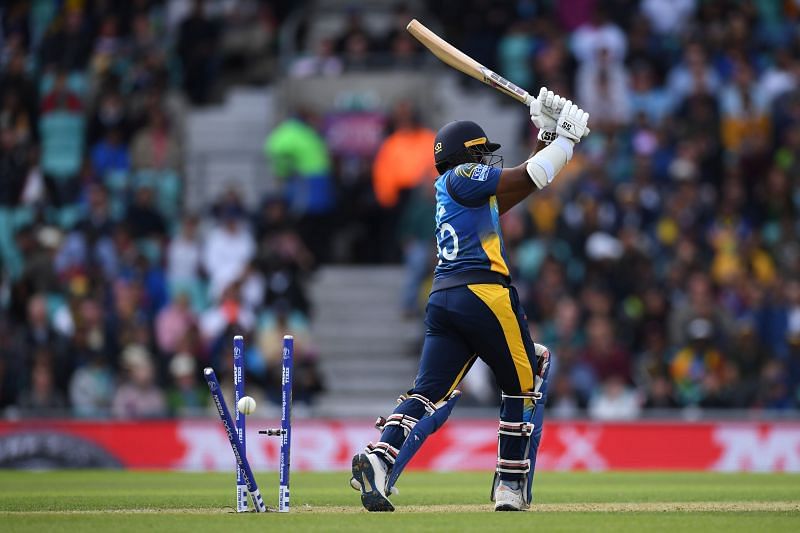
Sri Lanka's fortunes will get worse before it can get better
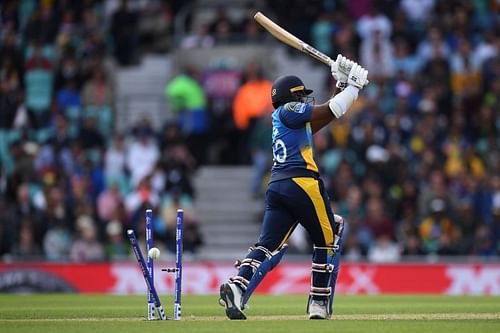
Back in 2019, Sri Lanka rocked up on British shores, hoping that their blend of youth and experience would spare them the ignominy of finishing in the lower trenches of the 2019 ICC Cricket World Cup.
To be fair to the Islanders, they punched above their weight for large chunks of the competition. They even harbored hopes of qualifying for the semi-final at one point. Yet, it didn’t come to pass as Sri Lanka finished 6th post the round-robin stage.
Nevertheless, the performances at that tournament were looked upon as the harbinger of a better future – one that would help Sri Lanka truly emerge from the shadow of legends such as Kumar Sangakkara and Mahela Jayawardene.
Unfortunately, that has proved to be a false dawn so far, with Sri Lankan cricket scaling (arguably) its lowest ebb in the ongoing ODI series against Bangladesh.
To put things into context, Bangladesh had never beaten Sri Lanka in a bilateral ODI series prior to this year’s instalment. Now, though, they have done it with a game to spare and could even consign Sri Lanka to a shattering 3-0 reverse.
However, there is a larger backdrop to the current rubber against Bangladesh. Sri Lanka have, rather openly, stated that they do not intend to go back to their senior players – cricketers that helped them defy expectations at the 2019 World Cup.
More importantly, they’ve maintained that they want to entrust their youngsters with responsibility and throw them into the deep end. That the ploy would, almost always, be accompanied by a sense of what could’ve been (with respect to the senior players) emphasizes the grave hole Sri Lanka have dug for themselves.
Thus, the chastening defeat to Bangladesh couldn’t have come at a more inopportune moment for Sri Lanka. Not only has it cast their youngsters under a considerably larger cloud, it has also reignited the debate of whether the senior statesmen should be reinstated.
At this juncture, it seems painfully clear that Sri Lanka just aren’t good enough to compete against the top eight (even nine) ODI outfits on a regular basis. Subsequently, one might be tempted to include the likes of Angelo Mathews, Dimuth Karunaratne and Dinesh Chandimal due to the sheer experience they boast.
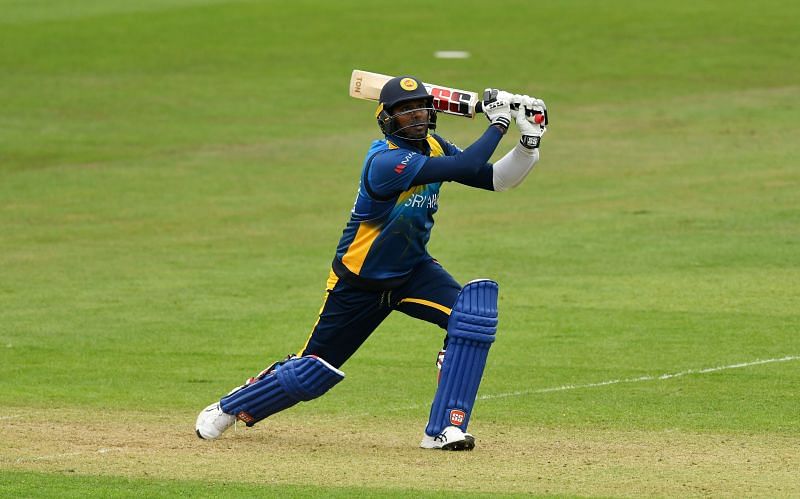
However, despite all the merits they bring to the fore, their re-introduction could have a counter-productive effect.
Kusal Perera was appointed Sri Lanka's ODI captain very recently
With Kusal Perera being handed over the reins, Sri Lanka seem to have chalked out a roadmap for ODI cricket. While the wicket-keeper isn’t the most consistent batter on the planet, he certainly has a feisty streak to him – one that surfaces when least expected.
Furthermore, Kusal Perera has quipped about Sri Lanka wanting to play a “fearless” brand of cricket – something in sync with how he plays the sport. For that to materialize, he needs to be given the requisite time and the resources to implement his ideas.
If the senior players are recalled into the fold, it might just add a layer of tentativeness to Kusal Perera’s captaincy, for he would always be looking over his shoulder nervously, hoping that his decisions don’t get undermined.
Though it might be a little far-fetched to equate Sri Lanka’s situation with that of England in 2015, there are enough parallels to suggest that the Islanders need a similar overhaul, both in terms of ideology and personnel.
In the aftermath of the 2015 World Cup debacle, England were content to trust Eoin Morgan and his white-ball revolution, even if it came at the cost of embarrassing and previously uncharacteristic defeats. The Three Lions have since reaped the rewards and have become a source of inspiration for countless cricketing nations.
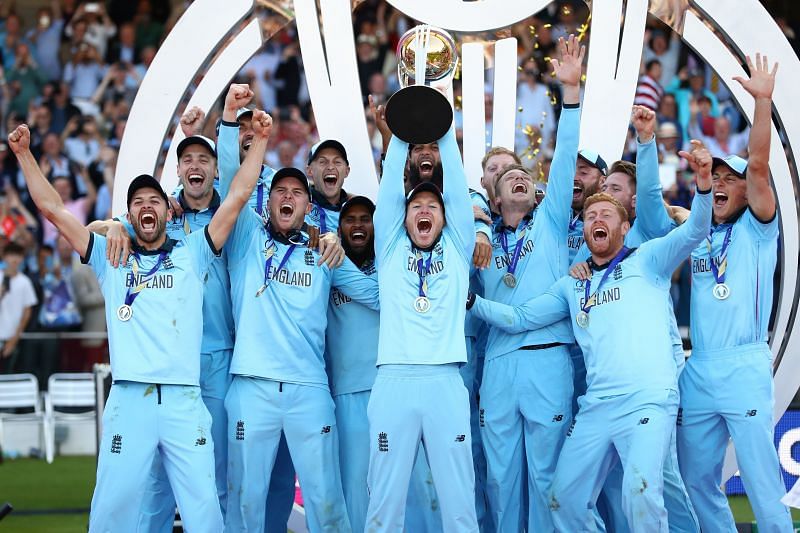
Another aspect Sri Lanka need to be careful about is the number of players they use. Over the past couple of years, the Islanders have chopped and changed every time the sun has risen in the East. Unsurprisingly, they’ve handed international debuts to a host of players, with only a handful grasping those chances successfully.
Hence, it is imperative that Sri Lanka identify a core of 15-16 players as swiftly as possible and then, back them to the hilt. The above would not only add a bit of continuity to Sri Lankan cricket, it would also allow these players the time and the environment to blossom into better cricketers.
To that end, perhaps the inception of the Lanka Premier League could help greatly. For starters, it does provide budding Sri Lankan cricketers an opportunity to test themselves against the best. More tellingly, it would enable them to get acclimatized to handling pressure – an aspect that has gone amiss from Sri Lankan cricket lately.
However, it is also important that the Islanders realize the amount of time it could take for these youngsters to become completely prepared for international cricket. At this point, they seem lifetimes away. Yet, if they are not given the requisite platform to flourish, Sri Lanka could find themselves farther away.
Thus, it might not be very prudent to keep falling back on Messrs. Angelo Mathews, Dimuth Karunaratne and Dinesh Chandimal. Not only would it block the pathway of emerging talents, it would also overshadow the change Sri Lanka are actively looking to bring about.
Moreover, the aforementioned troika hasn’t really set the world ablaze in recent times, meaning that a recall isn’t as enticing as it once was.
Though Angelo Matthews averages a shade over 40 (40.52) in ODIs since 2018, his strike rate has gone down significantly. Dinesh Chandimal, meanwhile, has bettered his career average in the same period (34.16 as opposed to 32.43). Yet, clinging onto a player who scores 34 runs per innings and might not have a sustainable future for Sri Lanka, personifies clutching at straws.
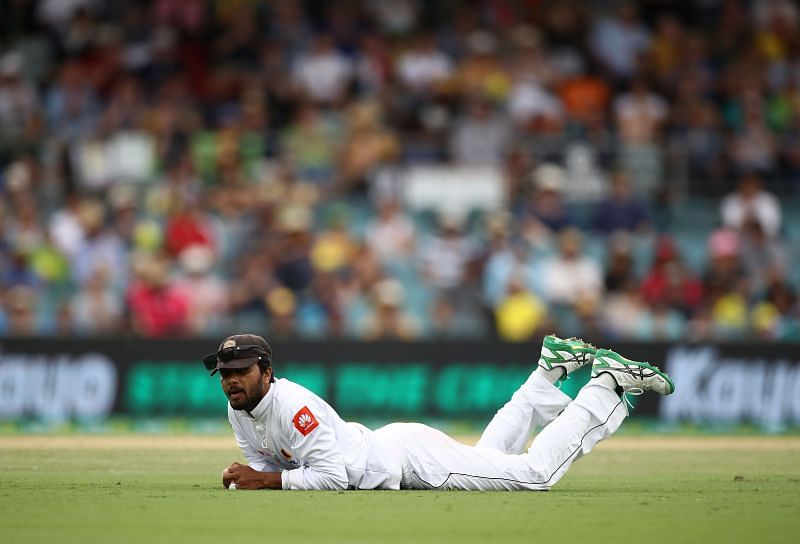
Dimuth Karunaratne, on the other hand, has never really looked capable of nailing down a spot in the ODI setup. And, with Sri Lanka stripping him of captaincy, it could be the death knell in white-ball cricket for the left-handed batter.
Hence, there is quite a lot to suggest that Sri Lanka might be better off placing faith in their youngsters. That the presence of senior players such as Chandimal, Karunaratne and Matthews hasn’t always translated into positive results, could make that particular decision easier.
Having said that, Sri Lanka must also be willing to accept they might scale greater depths in the upcoming months, for it directly coincides with the youngsters and Kusal Perera – the captain’s teething period.
In simpler words, Sri Lanka must be prepared for their fortunes to get a lot worse before there is any chance of it getting better.
Again, there is no guarantee if Sri Lanka would be able to reach the dizzying heights that was once the norm for them. Yet, if they prioritize a solitary methodology and place all their eggs in that basket rather than looking at short-term gains (which aren’t accruing anyway), they might reap a few rewards.
At this point, Sri Lanka need to keep telling themselves that there will be a new dawn. And, that these youngsters might have the best chance of providing it.
Perhaps, it is the only thing they can cling onto at this juncture.
Also Read: Mushfiqur Rahim proves run-accumulating artists still have a place in ODIs